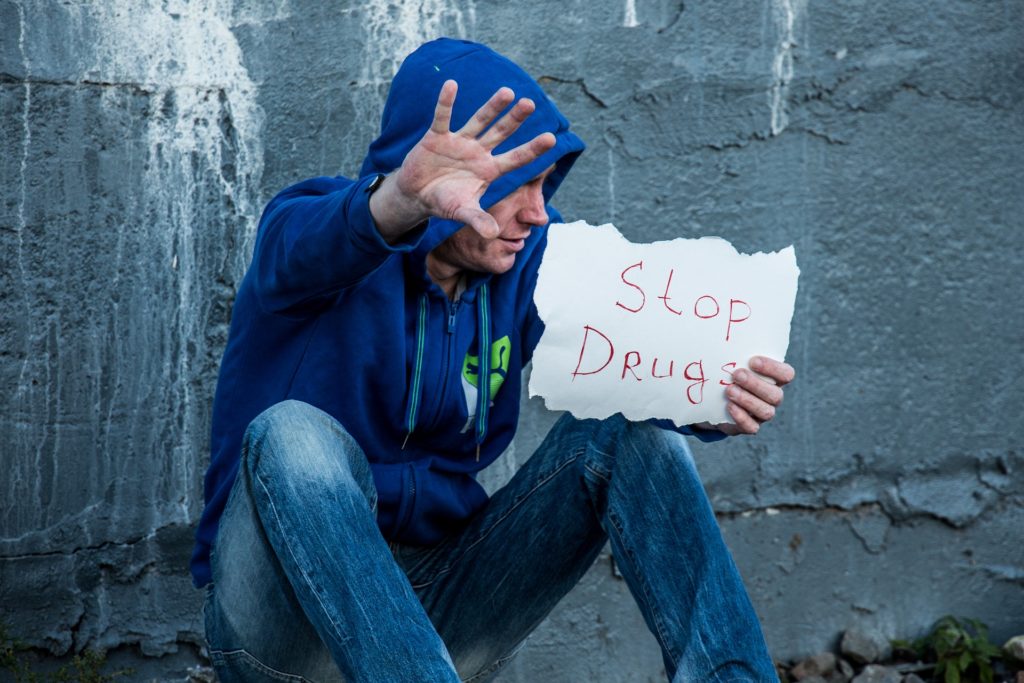
"How long will my recovery take?" is a commonly asked question by patients battling an addiction. There is, however, no simple answer. Especially when it comes to heroin addiction, treatment may prove to be more complicated and lengthy. Despite the difficult journey, what needs to be prioritized is getting control of your life back and living it to your full potential.
The majority of rehab programs typically range from 28 days to 90 days, depending on the individual needs of each patient. Hence, rehab programs considerably differ depending on your needs, length of stay, and the level of care needed.
Understanding the Impact of Heroin Addiction
Heroin addiction is considered one of the most extreme and destructive addictions, with the possibility of rehabilitation turning out to be a lifelong process. Users may experience withdrawal symptoms, such as nausea or sleepiness, immediately after the first use.
Produced from the poppy plant, heroin is a dangerous and highly addictive semi-synthetic form of morphine. Even though heroin was initially marketed to be safer than morphine, ironically, it is not just more addictive than morphine but is reported to be one of the most addictive substances ever created.
Consequently, heroin addiction treatment is considered highly complicated and cravings are exceedingly persistent.
Heroin is typically injected, snorted or smoked to produce a euphoric state. Repeated use of heroin can lead to extreme physical and psychological dependence that is difficult to treat. [1]
 Heroin invades the brain rapidly and transforms back into morphine. It binds onto the opioid receptors on cells located in various regions of the brain, especially the ones related to sensations of pain and pleasure, and those located in the brain stem, which influence vital processes, such as blood pressure, sexual arousal and breathing. [2]
Heroin invades the brain rapidly and transforms back into morphine. It binds onto the opioid receptors on cells located in various regions of the brain, especially the ones related to sensations of pain and pleasure, and those located in the brain stem, which influence vital processes, such as blood pressure, sexual arousal and breathing. [2]
The past decade has witnessed an alarming increase in heroin use among young adults, aged 18 to 25 years.
As heroin use exacerbated in the United States by 63 percent between 2002 and 2013, there has been a simultaneous increase in heroin-related overdose fatalities as well.
During the time span stretching from 2002 to 2013, the rate of heroin-related overdose deaths has nearly quadrupled, as more than 8,200 people died in 2013.
Effective Treatment for Heroin Addiction
The treatment for heroin addiction is an all-encompassing approach constituting of several treatment programs and support groups alongside comprehensive medical care. Such an inclusive and evidence-based treatment is essential for patients to attain long-term sobriety.
An all-inclusive combination of therapy, counseling, social/emotional support and necessary medical care can lead to a full, lasting recovery from heroin addiction.
As explained by the Harvard Health Publications, the initiation of the treatment of heroin addiction is essentially characterized by detoxification, and is often followed by a medication maintenance therapy, or replacement therapy, and counseling.
1. Detox
The initial step to any heroin addiction treatment plan is detoxification. This stage is one of the most important and most perilous parts of the entire treatment process.

During heroin detox, the patient will completely abstain from heroin and adjust to the consequent withdrawal symptoms in order to overcome physical dependence on the drug.
This is typically the point in treatment when withdrawal symptoms will emerge and will peak to a point of intensity that often pushes patients back to drug use in an attempt to escape the pain or adverse consequences that they are experiencing in the absence of the drug.
Detox typically lasts from 3 to 14 days, depending on the type and amount of substance abused. The length of time spent on the detoxification process can also affect the duration of the necessary addiction treatment to be followed. [3]
2. Medical Intervention and Care
Medical detox is also often important for combating heroin addictions of extreme severity. Sometimes, an invasive medical intervention is also needed to ensure a successful recovery for the patient. Medical care for a heroin addiction treatment is characterized by constant monitoring to ensure the safety and good health of the patient as they undergo detoxification.
In certain cases, medications can be provided to the patients in order to relieve the withdrawal symptoms. Such medication replacement therapy often involves the use of one of the following medications:
- Suboxone
- Naltroxone
- Methadone
- Buprenorphine
It is important to know though that replacement therapy does not qualify as a short-term solution for heroin addiction. For some patients, it may take years of being on a medication to yield effective results in their therapy.
During replacement therapy, patients typically require supervision on a daily basis in the beginning. Gradually as the treatment progresses, this monitoring may be reduced to a weekly or even monthly interaction with a doctor or professional caregiver.
Replacement therapy is combined with counseling and support groups in order to provide the greatest chance for a successful recovery.
Importance of Individualized and Extended Addiction Treatment
It is advised for the patients by both the National Institute on Drug Abuse (NIDA) and the Centers for Disease Control (CDC) to enroll themselves in treatment programs stretched over at least 90 days of duration.

In fact, the CDC has deemed the durations of drug treatment programs as one of the most important indicators of the success and efficacy of different recovery programs and rehabilitation centers. [4]
Since several integral regions of the brain are involved with and impacted by addiction, it is vital to allocate a large amount of time to rehabilitate and recover. Most often, the answer to the question "How long do recovery programs take?" is 90 days.
Yet, some programs may continue for 18 months or even longer. The bottom line is that different patients will take different amounts of time to recover.
In the face of such variations, it is important for long-term recovery programs to be flexible to individual patient needs and help them reprogram their perspective toward life altogether.
 About the Author:
About the Author:
A journalist and social media savvy content writer with wide research, print and on-air interview skills, Sana Ahmed has previously worked as staff writer for a renowned rehabilitation institute focusing on mental health and addiction recovery, a content writer for a marketing agency, an editor for a business magazine and been an on-air news broadcaster.
Sana graduated with a Bachelors in Economics and Management from London School of Economics and began a career of research and writing right after. The art of using words to educate, stir emotions, create change and provoke action is at the core of her career, as she strives to develop content and deliver news that matters.
References:
[1] http://www.myaddiction.com/heroin.html
[2] https://www.addictions.com/heroin/
[3] https://www.drugabuse.gov/publications/research-reports/heroin/what-are-treatments-heroin-addiction
[4] http://www.recovery.org/topics/understanding-addiction-treatment-program-lengths/
[5] http://www.medscape.com/viewarticle/847651
The opinions and views of our guest contributors are shared to provide a broad perspective of addictions. These are not necessarily the views of Addiction Hope, but an effort to offer discussion of various issues by different concerned individuals.
We at Addiction Hope understand that addictions result from a combination of environmental and genetic factors. If you or a loved one are suffering from an addiction, please know that there is hope for you, and seek immediate professional help.
Published on July 16, 2017.
Reviewed By: Jacquelyn Ekern, MS, LPC on July 16, 2017
Published on AddictionHope.com
